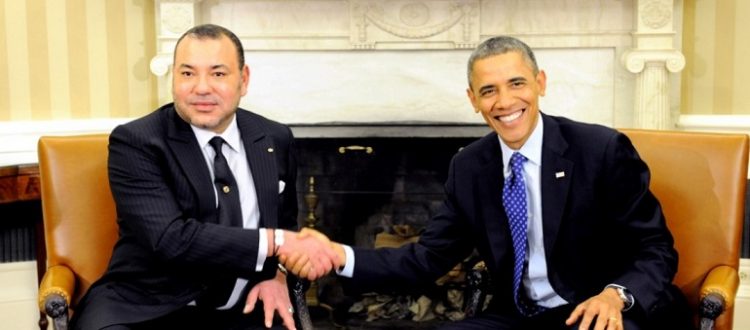Supporting the Kingdom of Morocco
Could it be that Morocco committed to democratic empowerment and sustainable development of communities and individuals will inspire a golden era of decentralized power and achievement for countries of the entire global South?
| Suggested Reading | Conflict Background | GCCT |
Dr. Yossef Ben-Meir
In recent decades the Kingdom of Morocco has embarked on a path that fully commits the nation to a development and civil course that is at once progressive and strongly connected to its national identity. The Moroccan model for success – with its core ideals of decentralization, human development, multiculturalism, south-south connectivity, and participatory methods – is essential not only for its own people but also for establishing a viable strategy for the people of Africa, the Middle East, and the world.
Could it be that Morocco committed to democratic empowerment and sustainable development of communities and individuals will inspire a golden era of decentralized power and achievement for countries of the entire global South?
What is compelling about the Moroccan example is the way that the local community level is emphasized in programs, policies, and laws. Actualizing local participation in development helps more than any other measure to ensure that projects directly respond to local needs and that community beneficiaries are themselves dedicated to help maintain their projects.
A major challenge running through efforts to promote local community development is the need to systemize local, democratic forms of decision-making and management within the context of a still highly centralized, public administration. Moroccan development programs promote inclusion, multi-perspective planning, public-private partnership, the engagement of all levels of society and the participatory frameworks to promote sustainable change from a local level. However, the scarcity of funding and availability of “learning by doing” workshops for people from all sectors in facilitating participatory methods of community planning–even when the approach is required to be implemented by legal statute–ensure progress only at a gradual rate, with incalculable benefits lost to communities year after year.
That decentralization and participatory methodology are embedded at many levels in key policy documents is in itself immensely commendable. For example, a wonderful opportunity is presented when Morocco’s National Charter of Municipalities makes it a requirement for elected members of local assemblies to assist in the creation of development plans that result from participatory, community-wide meetings. Yet when the great majority of those elected members have never observed or experienced the application of participatory democratic methods, this excellent policy remains largely ineffectual relative to its transformative, grassroots potential.
Facilitators of community dialogue are essential in order to ensure that local meetings are widely attended, all voices have the opportunity to be expressed and heard and the community data generated is made available to local people so that they may make the most informed decisions possible. The effectiveness of facilitators is enhanced greatly when they participate in capacity building workshops in community settings toward creating real projects. Facilitators who assist applications of participatory planning and assessments of local needs, may include–among others–elected representatives, schoolteachers, civil society organizers, government technicians, dedicated women and youth, cooperative members, private sector workers, village leaders and volunteers.
However, genuine community planning is not enough–there must be funding to implement the initiatives they determine. In Morocco, unfortunately, too many well-meaning programs, which should be the natural vehicle for project finance, remains too inaccessible to the majority of people and their local associations owing to its challenging proposal format, inconsistent timing of calls for proposals and a requirement for local partial funding which is simply impossible for the majority of groups, especially rural.
What difference can we make in Morocco and most rural places to break this impasse and create an independent, ongoing revenue stream to advance human development projects? The answer lies in promoting organic agriculture and the entire value chain, from nurseries to sales. Most rural people derive income from agriculture, and most poor are in rural places. Net revenue can then be managed and dedicated by local cooperatives to build the schools, drinking water systems, and new businesses. In this way the revenue from Moroccan organic agriculture can build a decentralized system and actualize the nation’s progressive policies.
What does all of this mean in a broader sense for Morocco, its place in the region and in a global context? To the extent that the Arab Spring signifies, on one level, the people’s call for empowerment, the Kingdom’s path of decentralization and sustainable development through the participatory method is highly relevant for the rest of the region. Just as decentralization is linked intimately to participatory community planning, both of which confer authority as close to the people as possible, so human development in Morocco is consciously allied to cultural inclusion and coexistence, particularly in the light of the Kingdom’s 2011 Constitution, detailing the country’s many cultures and ethnicities, past and present.
Surely then, it is worth lending our wholehearted support to the Kingdom of Morocco so that this deeply humane model may spread hope throughout the continent and in our world.
Dr. Yossef Ben-Meir is a sociologist and president of the High Atlas Foundation, a U.S.-Moroccan international development organization.
The views expressed in this article do not necessarily reflect the views of TransConflict.




















Supporting the Kingdom of Morocco https://t.co/uKugKazhaT #Morocco
Supporting the Kingdom of Morocco https://t.co/2Xz8BghW4o #Nonprofit
Supporting the Kingdom of #Morocco by @HafFdtn – https://t.co/sakNJ9XMj1
Supporting the Kingdom of #Morocco by @HafFdtn – https://t.co/YUoWE5YX4r
RT @TransConflict: Supporting the Kingdom of #Morocco by @HafFdtn – https://t.co/sakNJ9XMj1
RT @TransConflict: Supporting the Kingdom of #Morocco by @HafFdtn – https://t.co/sakNJ9XMj1